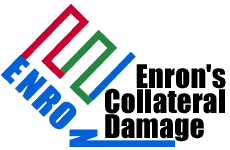 Iran’s Attack on Israel
Iran’s Attack on Israel


3 min read
4 min read
7 min read
5 min read
In an age of electronic information, a person's reputation can be destroyed with the press of a button.
"Sticks and stones can break my bones but names will never hurt me."
Did you chant that on your playground? Did you shout it back to the school bully? Do you recite it to your children as comfort and advice when they are similarly teased? Is it true?
In a society racked by scandal, with CNN offering Breaking News online, with front-page articles in every newspaper on the latest white-collar crime, and urban legends propagating on the Internet, are we sure that names don't hurt?
Are we sure that everyone charged is guilty? If they're not, where is the retraction printed? In which obscure column? And how much damage is caused along the way?
Even if someone is guilty as charged, what about their family?
Even if someone is guilty as charged, what about their family? Their spouse and their children? Do they deserve to be dragged through the mud? Ostracized? Taunted?
Jewish tradition tells a story. (Substitute investment banker and car mechanic for rabbi and tailor and you have a modern cautionary tale.) A prominent rabbi once loaned the local tailor some money. The tailor returned the money but the rabbi was immersed in Torah study and forgot to record it. Later he asked the tailor for repayment on the loan. The tailor claimed he had already paid it but it was his word against the rabbi's. The town was appalled at the tailor's behavior towards their beloved rabbi and they drove him out of business.
A few years later the rabbi was studying and came across some money stuck in his book. He realized it was the repayment from the tailor. Embarrassed and ashamed, he begged the tailor for forgiveness, but the tailor pointed out that his reputation was already ruined and people would only think that the rabbi had felt sorry for him.
Finally the rabbi hit upon a solution: So that everyone will know that I truly made the mistake, I will marry off my son to your daughter. So the rabbi and tailor became in-laws. Drastic problems sometimes call for drastic solutions!
And on a deeper level, if the person named is guilty, is that the sum total of the person? Do any of us want to only be known for our mistakes, our weaknesses? Do any of us believe that's an accurate reflection of who we are?
How many lives are destroyed by headlines? By the public's "right to know"? By cloaking our desire for juicy gossip in the guise of important information? Do we really appreciate the toll?
I've often thought of the implications for a doctor charged with malpractice. Let's say he is acquitted. Perhaps the plaintiffs were angry, or in pain, or just greedy. But they were wrong. The doctor behaved reasonably and professionally. Would you visit that doctor? Would you refer your family and friends to him? Or would there be that small seed of doubt, that tiny concern you just couldn't rid yourself of? He will probably be ruined financially and his hard-earned reputation destroyed. Names can never hurt me...?
After being acquitted of fraud, he died from the side effects of a damaged reputation.
Still skeptical? Ask Elizabeth Pandolfo. She says her husband died from "the side effects of a damaged reputation." He was acquitted of penny-stock fraud. But the reprieve came too late. The damage was too deep and too devastating. He died two months later of a heart attack. (Wall Street Journal, October 10, 2002)
Innocent employees of Enron and Arthur Anderson are tainted. Not only are they unemployed, but they are mocked, criticized, and not trusted. The power of the written word.
In an age of electronic information, people are implicated in scandals almost before they know it, their names flashed on computer screens across the world before they've had time to discuss the situation with friends and family. Havoc is wreaked with the press of a button.
It may be too late to put the genie back in the bottle. The press no longer treats politicians (or anyone) with kid gloves. Everyone is fair prey. Bad news is a "good" story.
But we don't have to read it. We don't have to follow the ins and outs; we certainly don't have to watch the rise and fall of "Martha Stewart" with glee. Perhaps it's a commentary on the emptiness of our lives, on our own sense of vulnerability and insecurity that we take such pleasure in the pain of others. Does another’s pain somehow keep mine at bay, making my life happier and more rewarding?
Wouldn't you rather be known as a harbinger of good news?
We don't have to be the ones who discuss it with out friends. We don't have to be the ones who spread the word. Wouldn't you rather be known as a harbinger of good news? While people might not await your company with the same juicy anticipation, they won't await it with dread, either.
We can even take the other side. We can promote withholding judgment, innocent until proven guilty (remember that concept!), compassion and understanding. Maybe we could actually change the topic, walk away if necessary… (What, and risk my own social ostracization?!)
It is imperative that we turn the tide, to try to protect the good name of others. Because in today’s world, who knows if your "good name" could be next.
